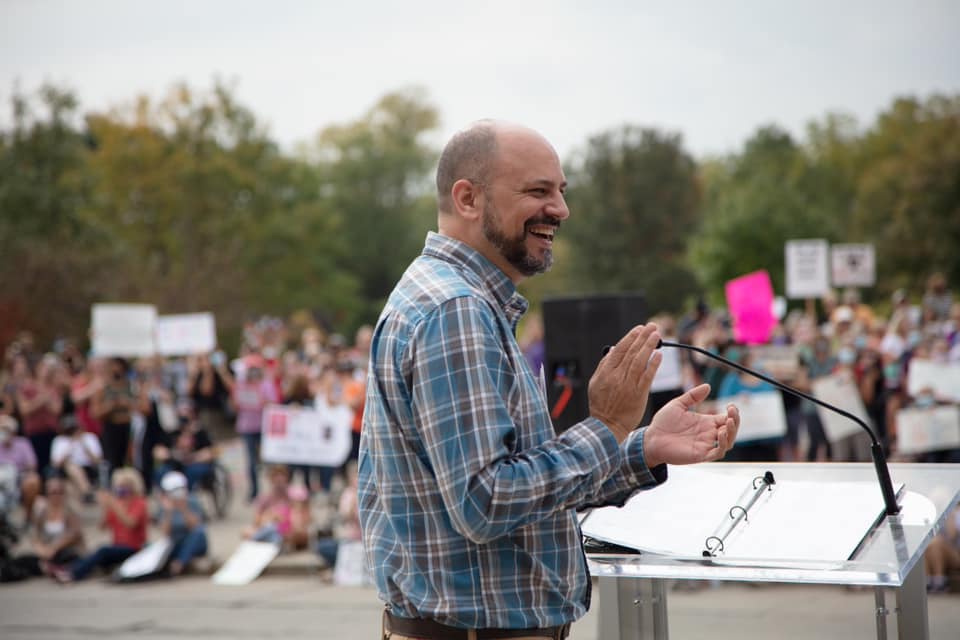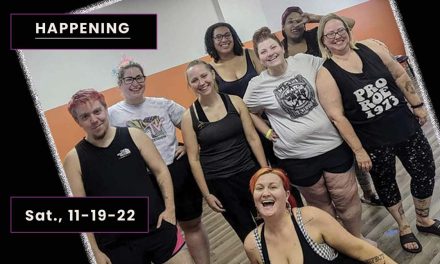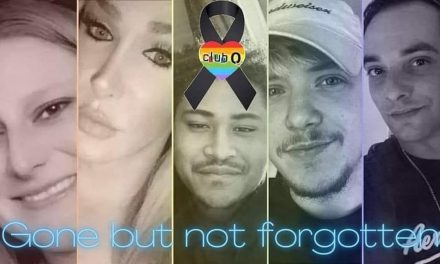Especially with the growing coronavirus pandemic and questions it forces us to confront about health care access, few topics are as urgent this year as health care. We’re needing to figure out how those without insurance can receive protection and treatment the same as those with insurance; how immigrants and international travelers can be included in our prevention efforts. Even before the pandemic, health care shaped the campaigns of this year’s Democratic presidential nominee contenders and was the subject of President Trump’s biggest lie in this year’s State of the Union speech. While the pandemic grows, candidates debate, presidents boast, and pundits opine, some entities in Iowa have worked for decades to give people access to doctors, medicine and treatment regardless of politics, financial trends, and policy debates. Here’s a profile of two:
Glenn Hurst, M.D. (Minden, Iowa)
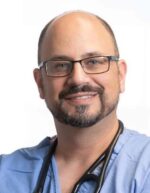
Glenn Hurst used to be part of corporate health care, traveling throughout Iowa building partnerships with small local providers to bring in specialists from corporate health care providers.
When he awoke to how corporate health care actually affected local communities, he went into private practice. Now, Hurst runs one of the few independent doctors’ practices in the entire state, and is among only 15 percent of healthcare providers nationwide that are in solo practice. His experience in both settings has helped Hurst shape some key insights and observations about health care, its recent changes, and some solutions to the expense and inaccessibility of health care, especially among rural communities:
• The corporatization of health care accelerated in the 1990s when large providers began to woo local practices to become part of their networks. In return for these relationships, which promised greater revenue, the local providers also gave up specialized services. “So now you’ve got the urban center that owns the tertiary center and also employs the physicians in both locations, including the specialist. They also own the rehabs, the physical therapy groups, the athletic trainers … all those things that reach out into those rural communities, are now fitting into these mega packages, these health systems,” Hurst says.
• The 1990s transition from full-service hospitals to “critical access only” facilities led to a drop in access, beds, and support staff like nurses. Health care employees ended up being paid less because they needed to have fewer skills; the domino effect led to less care, and lower quality care.
• At first, local hospitals gave up their intensive care and emergency room units under this arrangement. Now, Hurst says, they’re starting to give up general surgeries like appendectomies and c-sections, and local labor and delivery units. This can discourage young families from locating in tiny towns hours away from labor and delivery services.
• The role of insurance companies has overshadowed quality, skills or even geography, Hurst says. Whether services are covered by insurance, and at what levels, are things handled in negotiations between the giant health care companies and the insurance companies, with little focus on the patient. The business arrangement between the insurer and provider determines where a patient is steered for further care, Hurst says.
• Insurance is the reason why Hurst currently collects only 45 percent of payment for the services he provides. Some companies use different documents to request insurance payouts; others use the same form as Medicare but want it filled out differently. With his small practice, Hurst cannot afford the time to contest so many of the insurance company’s denials.
• Even large corporations are overburdened by insurance company denials, Hurst said. He notes that one major hospital in southwest Iowa employs about 10 people solely to contest insurance company denials. “Even these big systems have no power against the payers. They don’t feel they have the leverage to demand some uniform expectations.” he said.
• Poor customer service and understaffing consume an inordinate amount of time for insurance companies and health care providers, Hurst said. Basic customer service standards would transform health care, Hurst says, including consistent industrywide forms; phone customer service training; staffing baselines to guarantee enough employees for call flow; and required prompt payment of claims within a designated time.
• Competition across state lines for health insurance would likely improve service and lower premiums in areas like Omaha/Council Bluffs, which borders Iowa and Nebraska; the Sioux Falls area that bounds Iowa and South Dakota; and the Quad Cities and Dubuque areas bordering Iowa and Illinois.
• The current situation regarding the Coronavirus, as it spreads from country to country, helps illuminate the absurdity of basing care on just citizenship. “Health care is not just a personal interest issue,” Hurst said. “You want to take care of sick people. Yes, someone is getting something for nothing. But it’s for the greater good.”
Free Medical Clinic (Iowa City, Iowa)
Barbara Vinograde leads a tiny staff consisting mostly of volunteers at the Free Medical and Dental Clinic, which celebrates its 50th year next year and now serves about 1,800 people annually with about 6,500 medical visits annually. She’s been part of the clinic for 28 years, helping to build a network that provides medical and dental care to anyone who needs it.
“Overall this clinic is such an essential part of this community,” she said. “It’s really a reflection of how our community has recognized how important access to care is for everyone regardless of their situation, lifestyle, history. I’m really proud to live in this community that has supported us for so many years not only financially but through in-kind partnerships.”
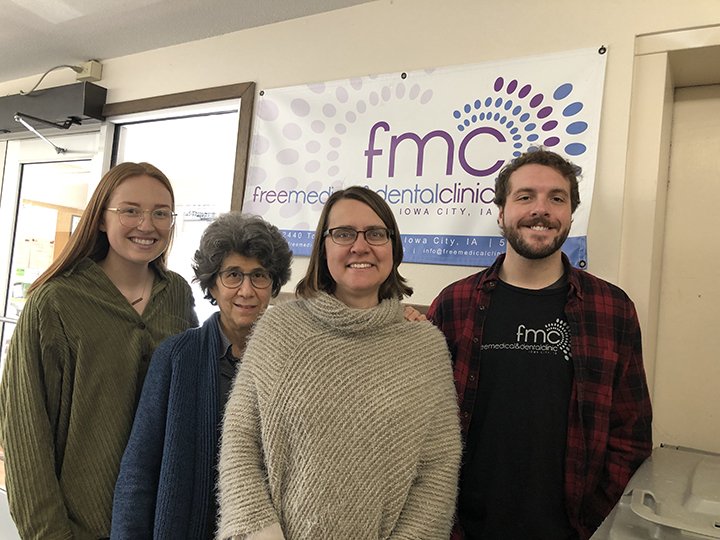
Vinograde was inspired to leave behind her original aspirations of a music career to work in health care, after she herself lived without health insurance for a time after completing college.
“I remember feeling scared,” she said. “When I got sick, when I needed to get help, I first had to figure out if I could afford to get the help I needed. It just creates another layer of fear and worry. It affects every area of your life: whether you can work, have a family, have relationships, live a meaningful life.”
Iowa City’s Free Medical Clinic is among only 25 such clinics throughout Iowa, and only 1,200 nationwide. About 44 percent of its clients are Hispanic or Latino, and about 22 percent are black. The clinic accepts anyone who is uninsured or under-insured, so is also an option for those who are under-employed or self-employed.
Vinograde says an increased number of patients are non-citizens, who face many bureaucratic challenges in getting care when they’re sick or injured. “Immigrants can purchase insurance plans but don’t qualify for federal assistance for five years,” Vinograde says. “Refugees often receive eight months of Medicaid when they arrive. After those eight months, they too are on their own.”
About 60 percent of those seeking medical care at the clinic have a chronic condition such as diabetes, a thyroid condition, asthma, COPD, hypertension, a heart condition or high cholesterol. The Clinic hosts six medical clinics every week that are mostly focused on addressing those chronic conditions, and two “acute care” clinics every week.
The network of support the Clinic relies on each year is a complex mish-mash of grant funding, municipal funding, fundraisers and in-kind donations. The Clinic receives about $1.5 million in in-kind donations for x-rays, mammograms, and laboratory testing. Among its largest supporters are University of Iowa Health Care, Johnson County and the United Way. Recently, North Liberty began providing a small amount; Coralville and Iowa City also rewarded grant funding.
The clinic never turns anyone away, but it is also at capacity for the staff that it has. Vinograde would love to have more full-time help, and several key areas of need have emerged.
“We’d like to provide more dental services,” she said. “We would love to hire a part-time gynecologist, to address the need for women’s health care, which has increased since Planned Parenthood has had so many challenges.”
Vinograde says she is continuously re-inspired by the joy and relief she sees among clients of the Free Medical Clinic. Interacting with clients helps her overcome the challenges of leading the clinic “in a country where health care is not seen as a basic human right.
”Thanks to our community, and an incredible group of people, the clinic has thrived over the years,” she says. “I look forward to a day when it’s not needed anymore because everyone will have access to care at other institutions.”

